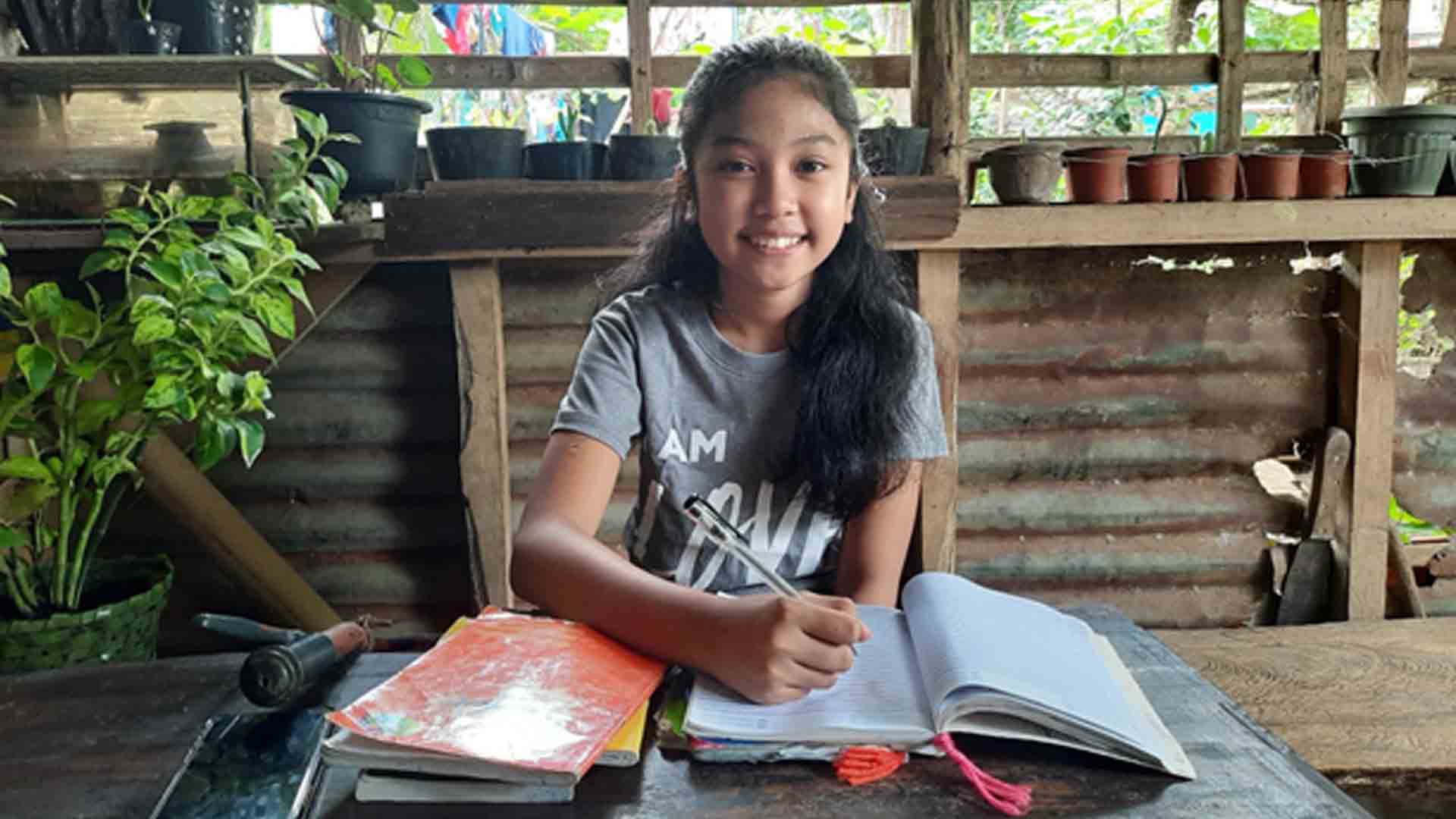Nexi, 12, is both excited and nervous for the coming school opening in August. Last March, her most anticipated graduation was held online to keep her and other students protected. She was the valedictorian.
“I was hoping I could walk on the stage with my parents as we receive my award. Sadly, COVID-19 prevented that from happening. But I understand it’s for our safety. Im just happy that I can be in Grade 7 this August,” she shares.
Nexi still prefers face-to-face learning. Nothing beats sharing stories or doing assignments with her close friends, she said. With the still rising cases of coronavirous in the country, however, students may not be able to physically go to their schools. The education department said that face-to-face classess will be postponed until there is a vaccine for COVID-19. Instead, distance or blended learning which explores different lesson delivery outside the traditional set up will be implemented. The use of radio, TV, online and modular learning will be maximized.
89% of children anticipate challenges in online learning
In a recent assessment conducted by World Vision in 21 provinces, 89% of the children respondents expressed their concerns about online learning. The study report also showed that 46% of the households surveyed do not have access to internet.
“I do not have gadget. My mother has a cell phone but I don’t think that’s enough. I have a sister who is also studying and who I have to share the gadget with in case we go for distance learning,” Nexi shares. Aside from lack of gadget, poor to no internet connection is also a concern. Her father’s work as a construction worker was disrupted because of the imposed community quarantine.
“We can barely provide for our daily foods. We have a lot of debts to pay because my husband has been out of work for months now. We do not have budget to spare for internet load,” explains Catherine, Nexi’s mother.
Learning should not stop
Acknowledging the concerns of both parents and students like Nexi, the education department said that in places where there is no access to digital technology, schools will provide students with printed modules.
“World Vision supports this initiative of the Department of Education. We have to find ways to ensure that children’s learning is not further disrupted by the pandemic,” says Geomel Jetonzo, Education Manager of World Vision in the Philippines.
Aligned to this, World Vision, in partnership with the Department of Education oficially launched the Abutin Na10 campaign, an initiative that aims to raise funds to help provide necessary gadget and printed modules to at least 10 million students across the country.
Aside from this, World Vision is also supporting the agency’s learning continuity plan by assisting in the digitization of reading materials while classroom learning is not yet possible. These materials will be uploaded on DepEd Commons, a free online resource for students and teachers. The organization has also started distributing learner’s kits to its assisted children.
“Education must continue – with or without COVID-19. To World Vision, you have been with us, in our country, not only for education but also for health and other needs. Thank you for conceptualizing this project. We hope that we’ll be able to achieve our goal and reach not only the learners in the urban areas, not only the learners in accessible cities and municipalities, but also those who are left behind,” said DepEd Secretary Leonor Briones.
As for Nexi, no matter what the mode of learning is, she’s determined to do her best. “I know there will be challenges when we start our classes but I will still do my best. I want to study well so that I can be an engineer someday,” she shares.







